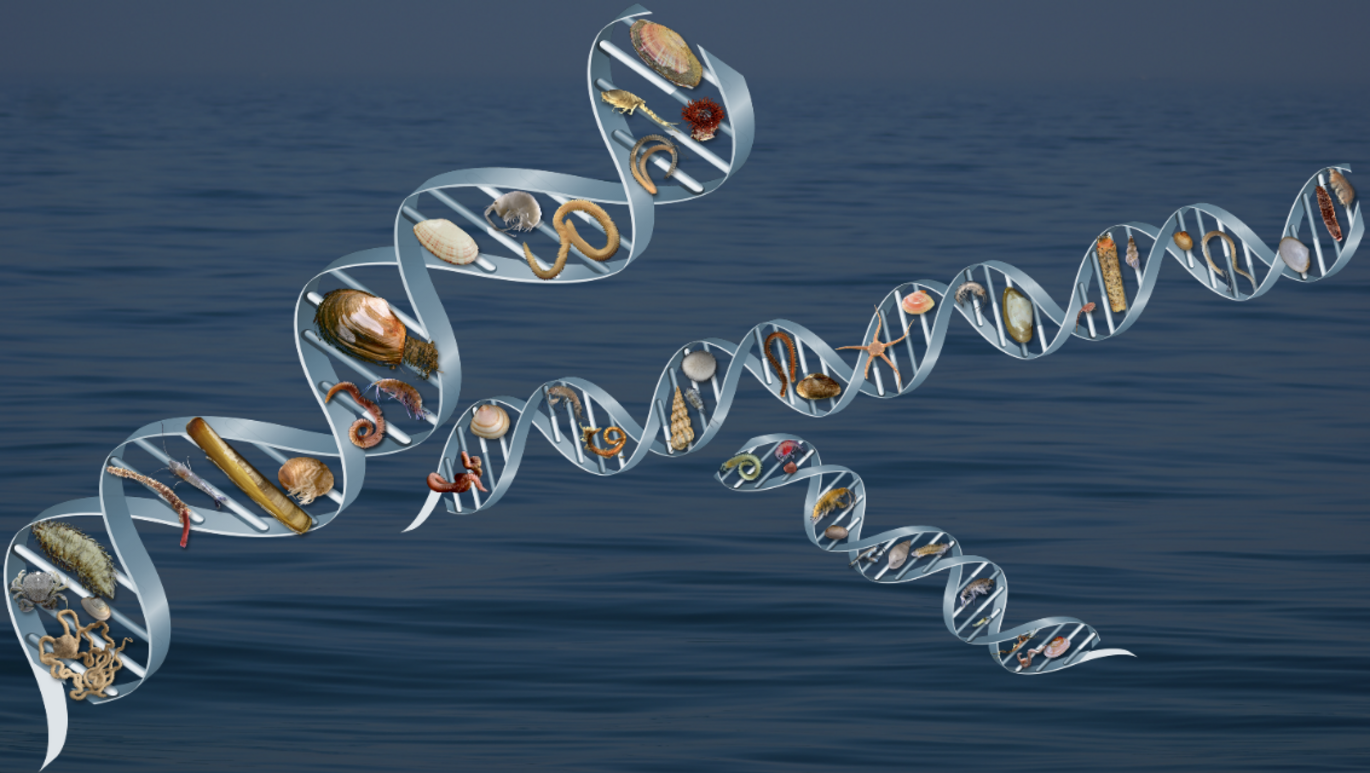Mapping North Sea bottom-dwellers via automated DNA-recognition
A new DNA library of life in the North Sea is the aim of new Interreg research project GEANS.

In the next three years, monitoring of the marine ecosystem in the North Sea will become more accurate and more efficient thanks to a European research project (the Interreg North Sea Project GEANS), coordinated by Flanders Research Institute for Agriculture, Fisheries and Food (ILVO). Scientists from all North Sea countries participate. For several hundred benthos (seabed-dwelling) species such as worms, amphipods, shells, brittle stars, and so on, “DNA barcodes” are developed. After setting up a digital DNA library, the presence of the species in question can be automatically machine-detected in a sample of seawater or substrate.
In almost all human activities in the North Sea (aquaculture, sand extraction, dredging, marine wind farms, shipping and fishing...) monitoring of environmental impact is a legal requirement. 'We first aim for DNA passports of species known as “canaries in the coal mine” for ecosystem changes, so we can quickly receive important alerts from our system, ' says coordinator Annelies De Backer (ILVO).
More monitoring – with a 40% cost savings and faster too?
Due to the rapid growth of industrial activities in the North Sea (shipping, wind turbines, sand extraction, etc.), monitoring of the health of seabed ecosystems is becoming increasingly important. Europe and the Member States already perform a large number of monitoring programs, done by scientific institutions such as ILVO. Belgium, for example, does the monitoring program for sand and gravel extraction. At European level, the spread of non-indigenous species is monitored based on ship displacements, among others.
Until now, processing of the many seabed samples has been done in the traditional way, by microscopically examination and identification. That is labor intensive and time-consuming. "Each soil sample goes individually under the microscope, then we determine which species are present and how many there are. Per sample, it can take up to three days to get results. Moreover, you need experts to identify the organisms and the right people are not always easy to find. "
For several years, experiments with DNA-based techniques such as meta-barcoding have been done. These techniques promise to identify soil organisms faster, cheaper and more accurately. Not only can hundreds of samples be processed simultaneously, the results are also potentially more reliable, because they are not dependent on human judgement. It is estimated that a well-developed system (a library of DNA profiles per type and use of harmonized methods) can represent up to 40% cost savings and give results up to 60% faster.
Final goal: sustainable management of the North Sea
In essence, a monitoring report provides answers to these questions: is the biodiversity in the seabed being affected? Are the vulnerable species still surviving? Are the characteristic species of a given ecosystem still present in sufficiently large numbers?
Interpreting the data in relation to the advance or deterioration of an ecosystem will always be work done by human beings. However, analyzing more samples – much more quickly and more accurately - could result in added value for the authorities and for the marine industrial operators. They can adjust their activities more quickly to keep the environmental impact at an acceptable level. Governments can also support the strategic management of the natural resources of the North Sea based on more reliable, integrated data series.
Coordinator Annelies De Backer (ILVO): "The North Sea is a rich and varied natural environment that offers many ecosystem services, such as food, coastal protection and climate regulation. On the other hand, human activities at sea are becoming more intense and diverse, an evolution that is being stimulated from Europe through the 'Agenda for Blue Growth'. The right measures must be taken to safeguard the health of the North Sea and, where possible, to improve it. '
Methodological agreements, open science, six pilot studies
The 'Interreg North Sea' project GEANS (Genetic Tools for Ecosystem Health Assessment in the North Sea Region) includes nine partners from Belgium, the Netherlands, Great Britain, Germany, Denmark, Sweden and Norway. Over the next three years, the researchers will strategically supplement the open source DNA sequence library for marine seabed animals from the North Sea. The database will remain accessible even after the GEANS project ends. "We expect that from now on, additional DNA profiles will be continually added to the collection."
In six pilot studies, researchers collaborate with companies, policy makers and other stakeholders. "In all six studies, we apply the DNA-based techniques next to traditional techniques in existing monitoring programs. One impact study examines aquaculture. Other pilot cases focus on non-indigenous species and on monitoring programs under the European Directives Natura 2000 and the Marine Strategy Framework Directive. Belgium is participating with sand extraction at sea. "
Notably, GEANS - per case and North Sea region - creates priority lists of important species whose DNA sequences do not yet exist yet are considered by science as salient indicators of an improvement or deterioration in Ecosystem, or a certain level of health of that ecosystem.
Contact:
Annelies De Backer – GEANS Coordinator – annelies.debacker@ilvo.vlaanderen.be, + 32 59 56 98 77
Nele Jacobs – Communication, ILVO – nele.jacobs@ilvo.vlaanderen.be, + 32 9 272 25 52
https://northsearegion.eu/geans/ The project had its official kick-off on March 15 2019 in Ostend. Flemish partners are ILVO and the Flemish Institute for the Sea (VLIZ). ILVO coordinates the project, leads the pilot study on sand extraction, contributes to the DNA library and the policy framework. VLIZ is responsible for international contacts and data management, and contributes to protocol development, pilot studies, product development and training.
